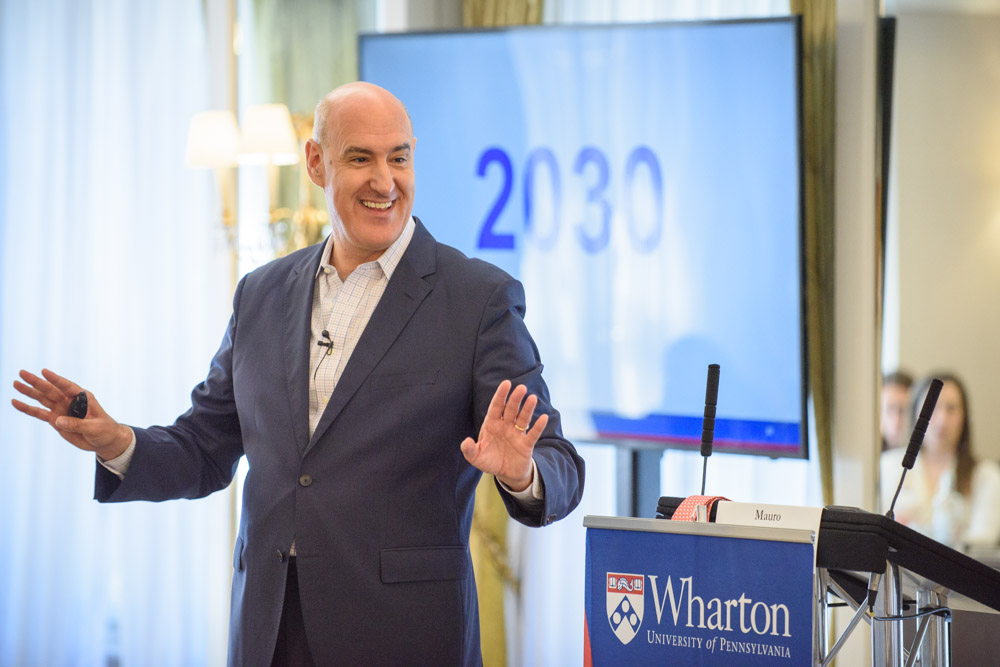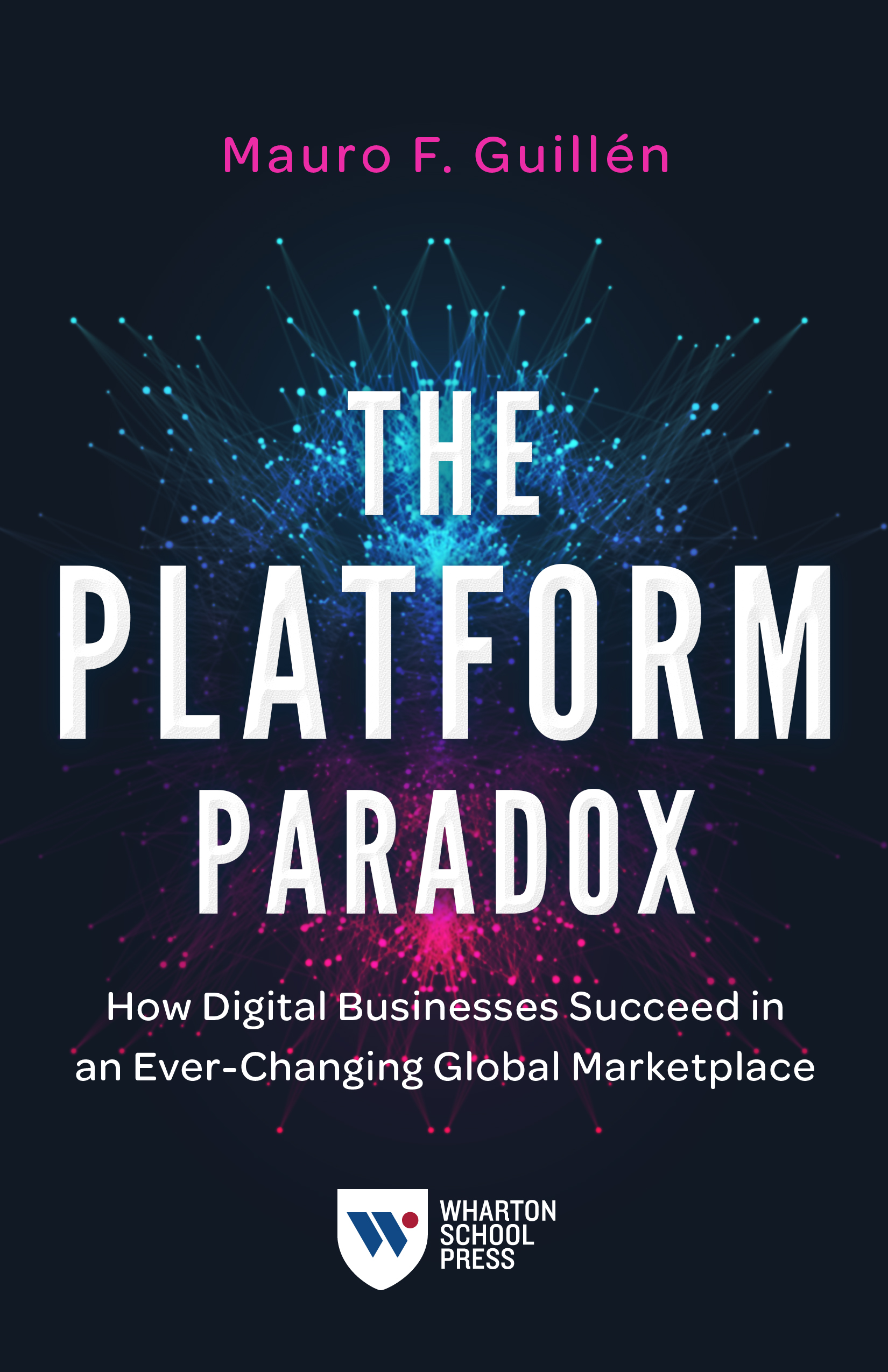Quick, precise, insightful and in rapid response mode. That is Mauro Guillen for you. Donning multiple hats astutely and with great finesse, Mauro is an eminent sociologist, political economist and management thinker and the Incoming Dean of the Cambridge Judge Business School and Fellow Queen’s College. Here in this freewheeling and crisp conversation with BrandKnew (published by ISD Global), Mauro does a bit of crystal ball gazing and also touches upon the inspiration for his book ‘ The Platform Paradox ‘. Read on..
Mauro F Guillen, Incoming Dean, Cambridge Judge Business School, Sociologist, Political Economist and Management Thinker, Author, The Platform Paradox
BK: if you were not to be a sociologist, political economist or management educator, what would you have been?
MG: An architect for sure. I’ve always wanted to build.
BK: Sometime towards the middle of last year, you had mentioned that the world will be different in 5 years time, mostly driven/changed by the pandemic? What made you take that crystal ball leap?
MG:This pandemic accelerates demographic and economic trends. Most importantly, it accelerates the adoption and use of digital platforms for shopping, learning, working, and entertaining ourselves.
BK: What do you advise organisations to be most agile and alert about considering the rapid acceleration and complexity that has hit the global stage in the last almost 18 months?
MG: First, don’t freeze. Make decisions to adapt. Second, don’t make any decisions that are irreversible. It’s very important not to run yourself into a corner, to keep your options open.
BK: Which hat sits best with you- sociologist, political economist or management educator?
MG: All of them. I like to wear several hats simultaneously.
BK: What was the big motivation for you to write ‘ The Platform Paradox ‘? And how was the experience?
MG: Platforms are taking over the world economy. Companies and consumers alike are using them. That’s why I decided to write this book.
BK: Unlike normally perceived (or expected), global ubiquity for platform brands like Amazon etc is a myth – would you want to elaborate more on this?
MG: With very few exceptions, like Google, digital platforms have not succeeded all over the world, not even Amazon, which is dwarfed in China by Alibaba and JD.com, for example. This is what I call the “platform paradox.” The Internet is a global medium, but platforms themselves very rarely have a truly global footprint.
BK: Network effects and Ubiquity: is it a linear path? Does the twain have to meet?
MG: Yes, network effects can be local, national, or global. When local (as in ride hailing) multiple platforms can prosper at the local level and in different parts of the world.
BK: Of late there have been questions raised about the actual efficacy of the fabled ‘ Harvard Case Study Method ‘- welcome your thoughts on this while you share more about the approach you conceptualised for GKL(Global Knowledge Labs).
MG: The case study method is a great way of helping business students understand key concepts. I invented the GKL at the Lauder Institute, where I was the director. It’s a different concept. It’s about learning culture and how it impacts business.
BK: ‘ Geography is history ‘ and ‘ proximity is redundant ‘ have been the refrains going around- as a strategic thinker and management educator, do you endorse these? If not, what’s your push back?
MG: As I said above, geography still matters. Network effects can be local, national, or global, and that has major implications for digital platforms and their success in different markets.
BK: If you were to hedge on a couple of global trends that will upend established industries be it healthcare or education sooner than later, what would those be?
MG: Telemedicine and remote (online) learning will revolutionize these two sectors. No doubt. The demand continues to increase and there are cost pressures. Both can be addressed through digital platforms.
BK: Finally, what do you love doing in your spare time? Do you listen to your Wharton colleague Adam Grant’s Work-Life Podcast?
MG: Reading and traveling. And yes, I listen to Adam Grant’s podcast.
…
Guest Author:
![]() Suresh Dinakaran
Suresh Dinakaran
Suresh Dinakaran is the Chief Storyteller at ISD Global, a brand strategy & creative ideations entity based out of Dubai and Managing Editor, BrandKnew. With over two decades of insights, expertise and experience in building and growing brands across multiple geographies and media platforms. Passionate about innovation, disruptive ideations, creative leadership and imaging the future apart from writing, movies, music and sports. He can be reached on suresh@groupisd.com
This article first appeared in www.warc.com Seeking to build and grow your brand using the force of consumer insight, strategic foresight, creative disruption and technology prowess? Talk to us at +971 50 6254340 or engage@groupisd.com or visit www.groupisd.com/story


